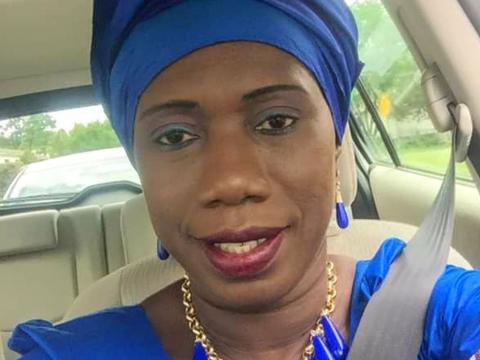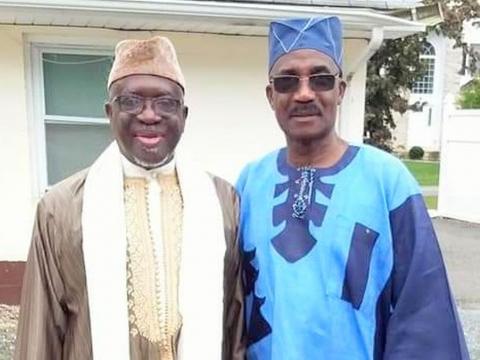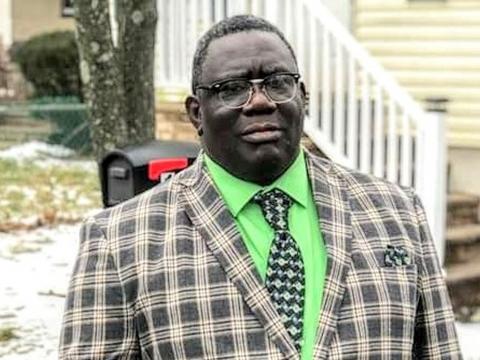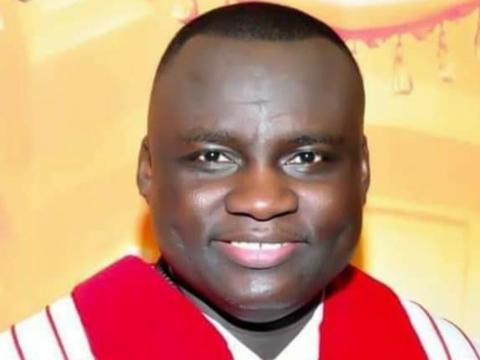By Aroun Rashid Deen in New York City
There are sometimes challenging moments that would grip a whole community making things appear to be at a complete loss. That was exactly what happened to the Sierra Leonean community in New Jersey in the United States in the wake of the COVID-19.
The pandemic hit Sierra Leoneans there hard. But when all seemed lost, the leadership from across all sections of the community in the state stepped forward and brought some calm, hope, and reassurance that all wasn’t lost.
When the coronavirus hit the United States with alarming reports of how ravaging it was getting particularly in New York State, Sierra Leoneans at home and around the world were deeply worried about their countrymen and women living in the US, more so for those living in New York. But it was in neighboring New Jersey that the death toll among Sierra Leonean immigrants was highest.
Of the 30 Sierra Leonean immigrant deaths listed throughout the US, twelve are from New Jersey. They succumbed within three months – from February to June.
The uncertainties that define the Coronavirus were apparent in some of the deaths. Though the majority of those who died in New Jersey were in their 60s, none was believed to have had serious underlying health problems. At least six of them were still working fulltime at the time of their deaths.
With the rapid spread of the virus, hospitals were becoming overwhelmed and running out of space for patients, so also were private morgues to keep dead bodies. As a result, the dead had to be buried in a hurry and with no more than ten people in attendance.
The coronavirus pandemic brought with it some other social and economic constraints as well. As it spread uncontrollably, it affected the global market causing people to be furloughed or laid off work as businesses were closing. Also, there were the mandatory social distancing rules and banning of large crowds gathering as a measure to combat the spread. Hospital visits were also not allowed.
Bereaved family members too were caught up in the social and economic limitations. Those limitations deprived them of the opportunity to see their loved ones in their final moments. There were also constraints in organizing the proper funeral and burial arrangements, let alone allowing entire families to attend such ceremonies.
But then, the leadership of the community rallied. From the Muslim and Christian faiths, the business community and social organizations, they stepped in. Whenever a death occurred, they would immediately contact and liaise with bereaved family members, plan with them. They’d raise funds, transfer corpses to funeral homes, help perform burial rites, and attend funerals.
Faith leaders worked relentlessly to bring their community together. Imams Alhaji Ibrahim Conteh of Da’Awatul Islamia and Alhaji Abdullah Karim Savage of Islamic Society of Franklin Township (Jamatul Haq), and Imam-at-large (Imam Gairat) Alhaji Ahmad Shamsu Deen-Cole, attended almost every funeral and conducted burial rites. They also reached out to and consoled the bereaved. So too were their Christian counterparts, the Rev. Sheka Ademu-John of I See You Worship Center (ISY Inc)., Evangelist Kolleh Samura of Light of Christ International, First Baptist Church of Lincoln Gardens’ Pastor DeForest Soaries, Pastor Cyndi Belsky Stouffer of UMC New Brunswick and the Rev. Victor Fakondo of Bethel United African Church also were at hand, coordinating and attending funerals. They also raised funds to assist with burial expenses.
Behind the scenes, women coordinators, Kadie Jalloh (KJ), Haja Kadie Sei, Haja Mariama Zubairu, Mariama Kamara, and Haja Kadie Sillah rallied other women. They ran the phone lines and raised funds.
Others who took leading roles are community coordinator and leading program organizer, Alhaji Mohamed Alieru Bakarr, businessman Nathaniel Manages, Abdul Hardy Gabisi of Sierra Leone Community of New Jersey, Sheikh Mohamed Ali Jalloh, Sheikh Ali Balla Barry, photographic publisher and historian, Yunisa Alharazim, community coordinators, Yada Alghali, Alhaji Bammie Zubairu, Alhaji Brima Rahman and Alhaji Noah.
Charmaine Conteh, the widow of one of the deceased, described support from the community as beyond expectations. “They stepped in a great and timely way and that was excellent.” Conteh described her late husband as “God-fearing” and of “strong moral principles”. She said she was blessed to have met a man who meant so much to her. “My husband had traveled the world and he introduced me to many places including in Africa, and that meant a lot to me to know more about my ancestral Africa.”
Widow Charmain Conteh said that while much emphasis was being placed on the social status of particularly minority victims of Covid19, little was being said about the fine attributes of their lives. “For me it’s all about the probity that defined my husband’s life.” Her husband of 10 years, Mohamed Mustapha Conteh died on April 29.
Businessman Nathaniel Manages attributed the community’s timely response to what he called the result of a unified communal system in which members see themselves as part of a close-knit family. Manages said the community structured itself in meaningful ways that benefitted not just members but also society at large. “For us here in the United States, New Jersey is Sierra Leone away from home,” he said, adding that the Sierra Leone community had defined itself in such meaningful ways that it had gained recognition in places such as the City of Franklin Township.
Abdul Hardy Gabisi, Secretary-General of SLCNJ, the umbrella body of Sierra Leone organizations in New Jersey which coordinated much of the community response, was humbled. “It is our responsibility as leaders to step in and help,” he said.
New Jersey is not the only state in which the deaths of Sierra Leonean immigrants in the United States happened during the current Covid19 pandemic. New York, Maryland, Virginia, California and Pennsylvania also experience their share of Covid19 deaths. New Jersey, nonetheless, has so far registered the highest number of deaths.
The Sierra Leone community leadership’s concerted effort in New Jersey at a very challenging time was swift, collective, and encouraging.
Aroun Rashid-Deen is a Sierra Leonean journalist based in New York
Copyright © 2020 Politico Online











